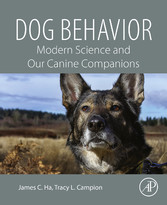Suche
Lesesoftware
Specials
Info / Kontakt
Dog Behavior - Modern Science and Our Canine Companions
von: James C. Ha, Tracy L. Campion
Elsevier Reference Monographs, 2018
ISBN: 9780128167465 , 228 Seiten
Format: ePUB, PDF
Kopierschutz: DRM




Preis: 34,95 EUR
eBook anfordern 







